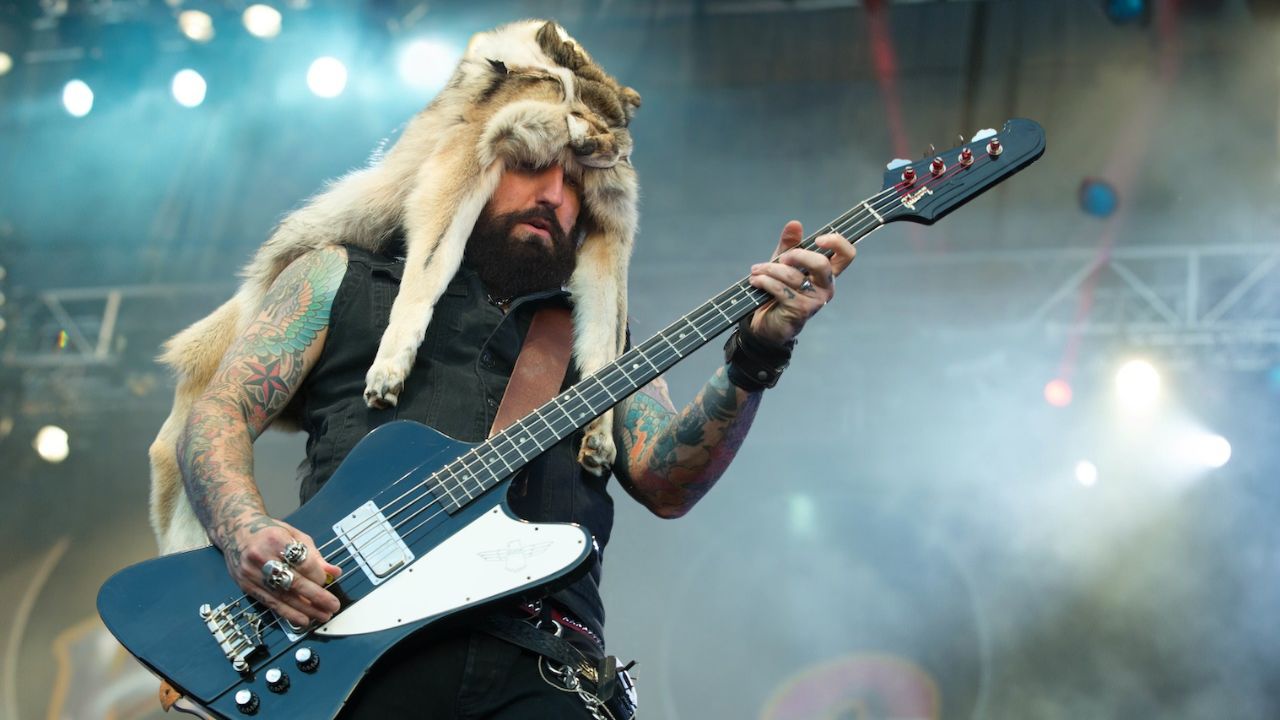The missing Beatles bass and the one track that Paul McCartney refused to play on
Abbey Road was at No.1 this week in 1969. We take a look back at a seminal moment for McCartney and the fab four
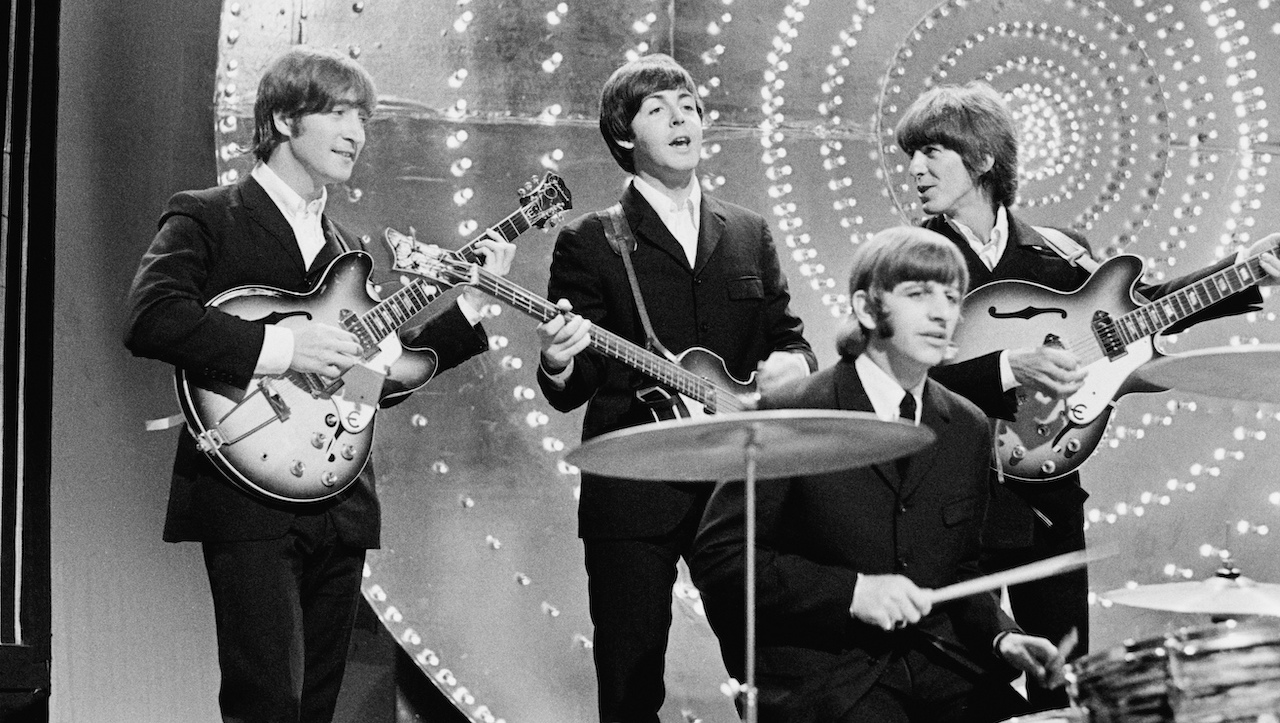
All the latest guitar news, interviews, lessons, reviews, deals and more, direct to your inbox!
You are now subscribed
Your newsletter sign-up was successful
When the Beatles went into Abbey Road Studios to record the ‘Paperback Writer’ sessions on 13th April 1966, they were looking to experiment with a new bass sound. At the time, the group were said to have been listening to Wilson Pickett, Marvin Gaye and other Stax recordings, where the bass content was a lot stronger and often at the forefront of the mix.
So when the Fab Four arrived at Abbey Road they had some new instruments to try out. John Lennon had a Gretsch 6120 and Paul McCartney a Casino guitar and a Burns Nu-Sonic bass, though surprisingly there is only evidence of George Harrison using the bass for this session, and it hasn’t been seen since.
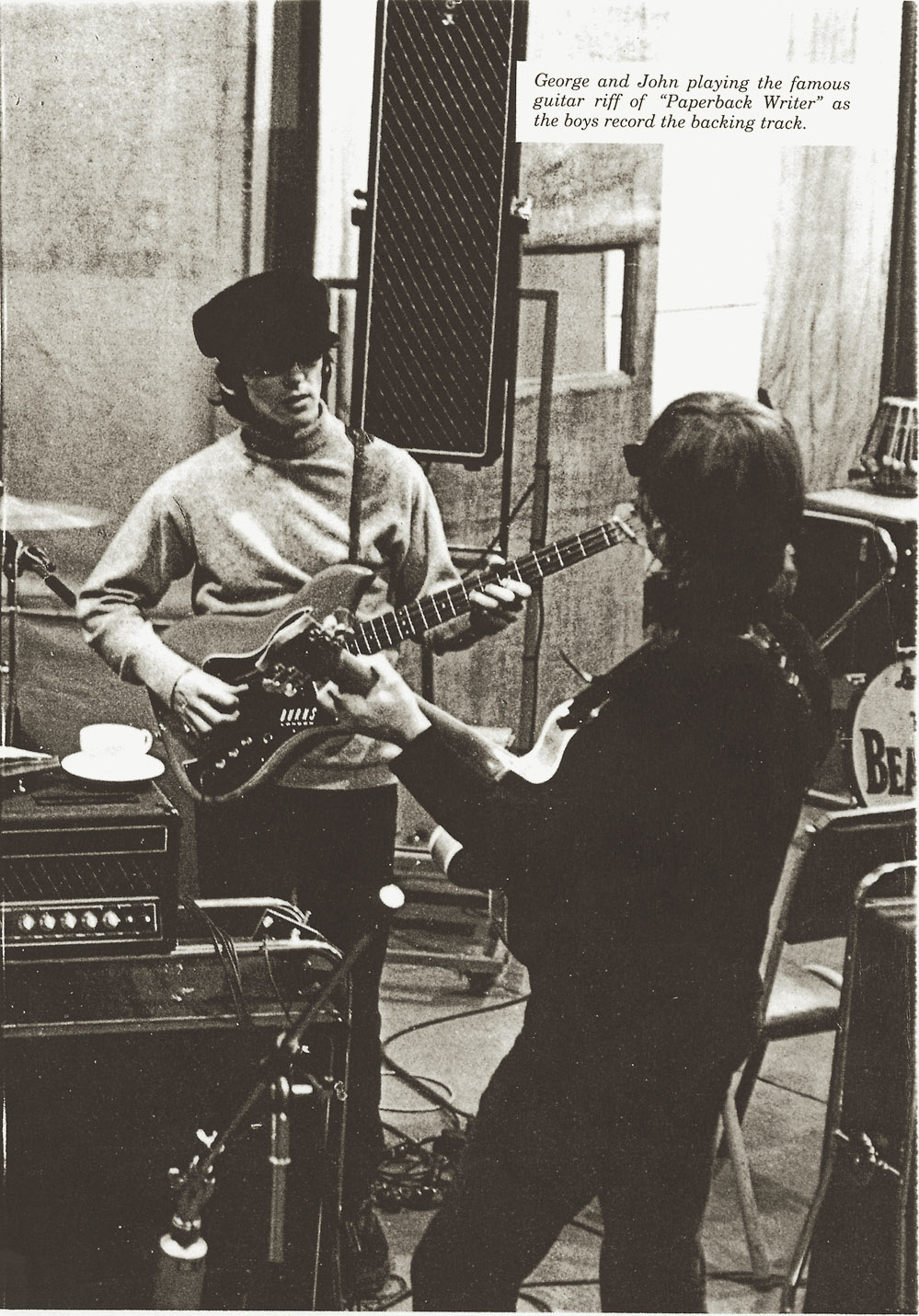
Paul McCartney was a guitar player first and foremost, yet with the Beatles he rarely gave up his position as bassist. However, there was one track that McCartney refused to be a part of. ‘She Said, She Said’ is one of the few songs he wasn't involved in.
“I think it was one of the only Beatles records I never played on,” says McCartney in a 1997 biography by Barry Miles, Many Years From Now. “I think we’d had a barney and I said, ‘Oh, f*** you!’ and they said, ‘Well, we’ll do it.’ I think George played bass.”
The Missing Beatles Bass?
Launched in 1964 as a follow-up to the Burns Sonic, the Nu-Sonic bass was marketed as a budget, mid-range instrument that was very light, with a short 30-inch scale length. When Barry Gibson relaunched the Burns brand in 1990, it was reissued along with various instruments from the original catalogue.
The re-issue was made to measure from a vintage Nu-Sonic bass that came into Barry’s possession in the late '80s. What’s more, Barry’s vintage bass is thought to be the missing Beatles bass from the Fab Four’s ‘Paperback Writer’ sessions. "The bass was part of a collection of vintage instruments that a guy had bought from the Baldwin guitar shop in St Giles Square in London," says Barry. "Once Baldwin had taken over Burns in 1965 they sold off all the guitars with the Burns logo to promote the new brand.
If this is what we think it is, it’s probably the most unsung one of all the Beatles’ instruments
Barry Gibson
"The story has it that this bass and a 12-string and a 6-string were Abbey Road guitars used to loan out to artists, who’d take them in the studio and return them after. I’ve just kept it as a sample, one of the many models we bought from the '60s, to use as templates to produce newer models. It’s not confirmed but we think it’s the one that Harrison used on The Beatles’ 'Paperback Writer' sessions.
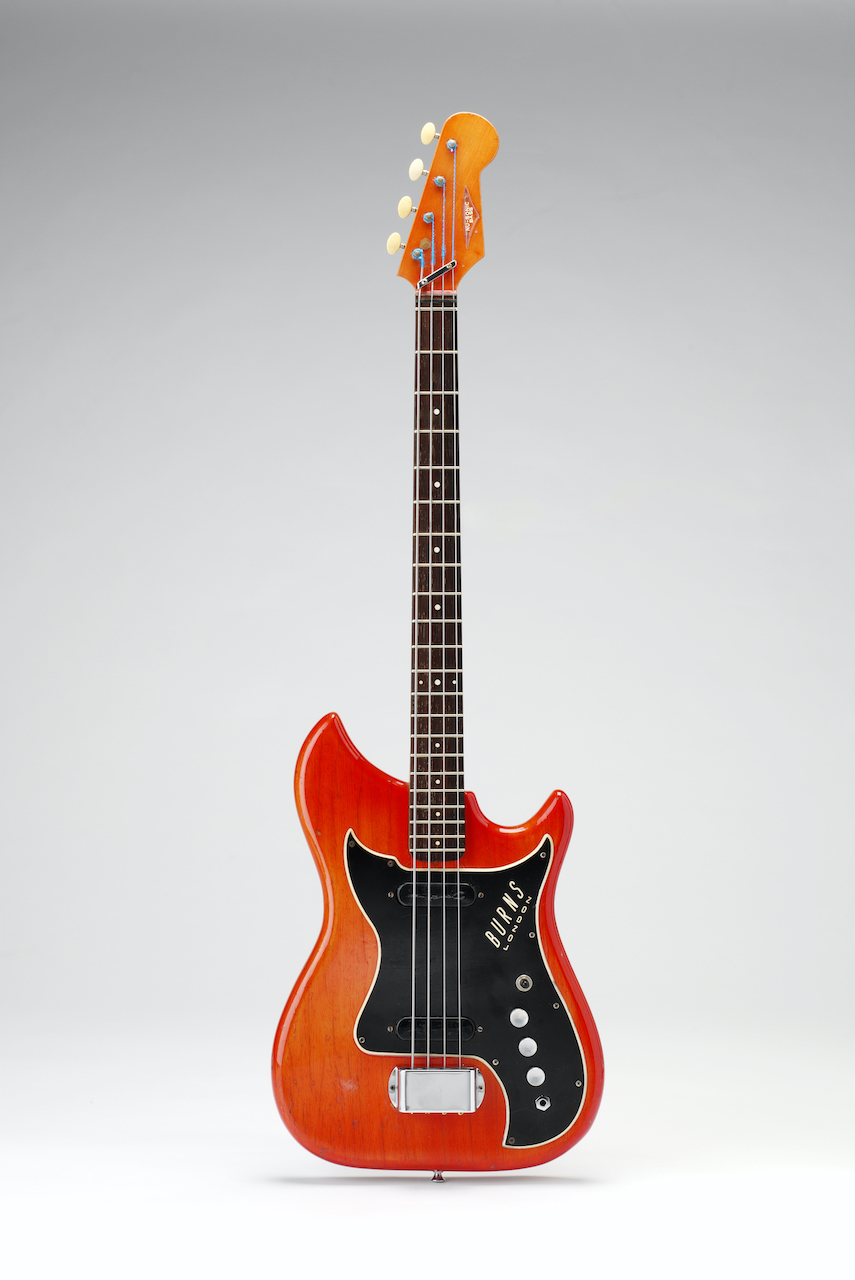
"While they were factory made, each one was a factory-made ‘one-off’, so every screw hole is in a different place, every scratchplate is different, and our bass is identical to the one in the photograph. Trying to tie down more evidence has been very difficult. We’ve spoken to various recording engineers that worked on that session, but it was a long time ago. All we’ve got is a few photographs to go by, and some archived material from various aficionados across the planet.
"We’ve had several instruments that have been owned or played by some well-known players of that period, but if this is what we think it is, it’s probably the most unsung one of all. All The Beatles’ instruments that were used in that period have been accounted for and located, but that’s probably the only one that’s never been seen since those sessions.
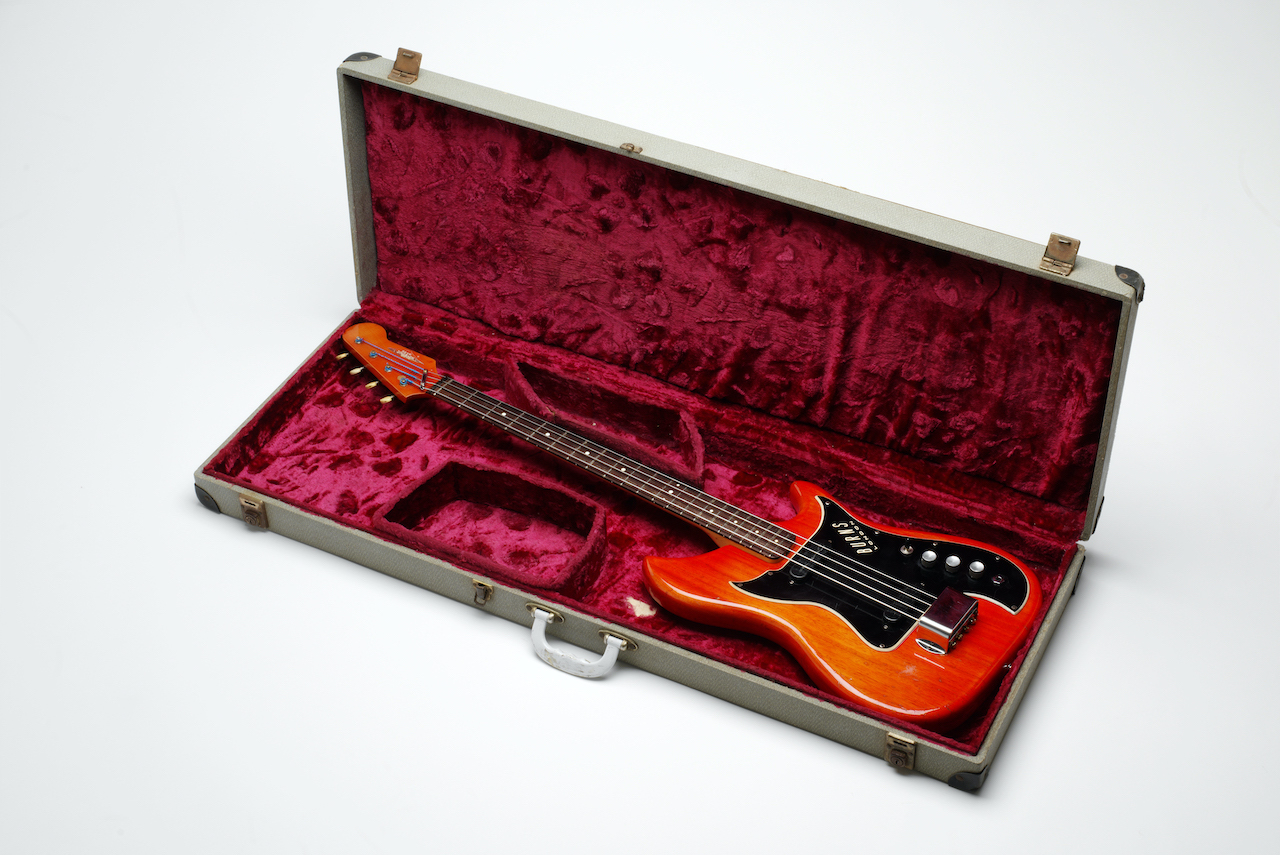
"With these things you have to have lots of providence, and all I’ve got is the word of the guy I bought it off that it was used at Abbey Road Studios for that session. Whether it was or it wasn’t, it was a useful bass to have in our collection, but as time’s gone on I’ve realised it could be quite a serious instrument – it should be given the light of day."
Visit Burns Guitars for more info on the Burns Nu-Sonic Reissue
All the latest guitar news, interviews, lessons, reviews, deals and more, direct to your inbox!

Nick Wells was the Editor of Bass Guitar magazine from 2009 to 2011, before making strides into the world of Artist Relations with Sheldon Dingwall and Dingwall Guitars. He's also the producer of bass-centric documentaries, Walking the Changes and Beneath the Bassline, as well as Production Manager and Artist Liaison for ScottsBassLessons. In his free time, you'll find him jumping around his bedroom to Kool & The Gang while hammering the life out of his P-Bass.
